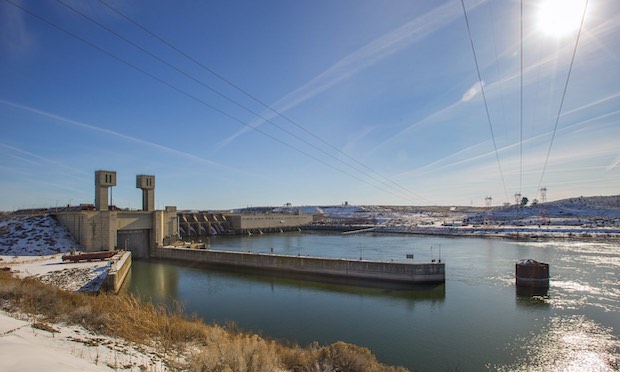forum
library
tutorial
contact

US Lawmakers Introduce Bills to
Block Snake River Dam Removals
by Nathan Strout
Seafood Source, May 28, 2024
|
the film forum library tutorial contact |

|
US Lawmakers Introduce Bills to
by Nathan Strout
|
"I have consistently reminded the Biden administration that the authority
over the Lower Snake River Dams remains in the hands of Congress,"
-- U.S. Rep. Dan Newhouse (R-Washington)
 A group of lawmakers from the U.S. Pacific Northwest have introduced a package of nine bills to block the federal government from potentially removing four dams in the Lower Snake River.
A group of lawmakers from the U.S. Pacific Northwest have introduced a package of nine bills to block the federal government from potentially removing four dams in the Lower Snake River.
U.S. President Joe Biden has made the restoration of salmon to the Columbia River basin a major focus of his administration. In 2023, the president signed a memorandum prioritizing fish restoration in the region, signed new salmon restoration agreements with area tribes, and directed Inflation Reduction Act funding to address deferred maintenance and upgrades. In December, the administration announced an agreement with Pacific Northwest tribes and states to restore wild salmon populations, which together with other actions would bring USD 1 billion (EUR 923 million) in federal investment to the region.
While the plan does not directly call for the removal of the four Lower Snake River dams, the White House noted that "investments under this agreement will help to ensure continued energy reliability and affordability, transportation, recreation, irrigation, and other key services, including in the event that Congress decides to authorize breaching of the four Lower Snake River dams."
Energy industry representatives and some area lawmakers argue that this clearly shows the federal government intends to remove those dams. That possibility was met with immediate opposition, including from U.S. Rep. Dan Newhouse (R-Washington).
"This final package, which would make our region's dams effectively defunct, confirms what we've all known for years. The Biden Administration is catering to the wishes of extreme environmental activists that do not understand both the importance of the dams to our region, and the consequences of their proposed actions," Newhouse said in December.
Removing the dams requires congressional approval, and now Newhouse and other lawmakers have introduced a series of nine bills that would reverse parts of Biden's proposal and prevent the removal of the Lower Snake River dams.
"I have consistently reminded the Biden administration that the authority over the Lower Snake River Dams remains in the hands of Congress," Newhouse said. "This package is not only a staunch reinforcement of that fact, but a testament to our commitment to protect these critical pieces of infrastructure."
In December 2023, White House Council on Environmental Quality Chair Brenda Mallory testified to lawmakers that the plan did not commit the government to remove the dams. However, the initial White House announcement makes clear that the plans include preparations for breaching of the dams.
"The federal dams on the lower Snake and mainstem Columbia rivers have had -- and continue to have -- devastating impacts on the salmon and our people, burdening our Treaty partnership," Nez Perce Tribe Chairman Shannon F. Wheeler said in the White House announcement. "So today, as Six Sovereigns joining together with the United States to advance salmon restoration throughout the Basin -- including preparation for breach of the four lower Snake River dams -- we are also witnessing the restoration of Tribal Treaties to their rightful place under the rule of law."
Newhouse and other lawmakers claim removing the dams would undermine dam operations and jeopardize the area's power infrastructure. The dam removal plan has also drawn opposition from the regional and national energy sector. In December 2023, the American Public Power Association and the National Rural Electric Cooperative Association sent a joint letter to Energy Secretary Jennifer Granholm expressing alarm with the government's agreement.
"If this agreement is ratified, it would jeopardize electric reliability and increase costs for millions of Americans throughout the Pacific Northwest," the two groups said in the letter. "The reliability of the Western electric grid is critical to continued national security, stability of our domestic food and mineral supplies, national economic stability, and our nation's energy security. Reliability should be prioritized as the U.S. government moves forward in assessing the legality and appropriateness of these proposed obligations."
Both Newhouse and industry representatives have accused the government of not being fully transparent about its plans.
In 2020, a federal draft report concluded that removing the hydroelectric dams along Snake River and Columbia River would provide benefits to endangered salmon populations, but would also increase greenhouse gas emissions, raise power costs, and reduce power grid reliability in the region.
learn more on topics covered in the film
see the video
read the script
learn the songs
discussion forum
